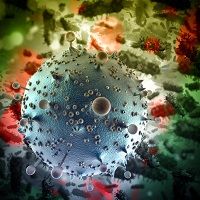4-Year HIV Antiretroviral Study Ends with Clear-Cut Results
The first large-scale clinical trial of its kind has confirmed big news when it comes to treatment for patients with the human immunodeficiency virus (HIV).

The first large-scale clinical trial of its kind has confirmed big news when it comes to treatment for patients with the human immunodeficiency virus (HIV).
Researchers from the National Institutes of Health (NIH) found concrete evidence that verified that patients with HIV who begin antiretroviral treatment earlier have a substantially lower risk of developing AIDS, as well as other diseases. The Strategic Timing of Antiretroviral Treatment (START) study indicated that instead of waiting until a patient’s CD4+ T-cell count is low, it is better to start the drugs when the levels are high.
“This is an important milestone in HIV research,” one of the co-chairs of the study Jens Lundgren, MD, said in a news release. “We now have strong evidence that early treatment is beneficial to the HIV-positive person.”
The International Network for Strategic Initiatives in Global HIV Trials (INSIGHT) began the START clinical trial back in March 2011 and was predicted to end in late 2016. However, a recommendation from an independent data and safety monitoring board (DSMB) caused the early information release.
The trial included 4,685 patients with HIV from 35 different countries. All participants were at least 18-years-old, with the average being 36, and never underwent antiretroviral therapy before. At time of enrollment each patient had a CD4+ cell count in the normal range which measured above 500 cells per cubic millimeter (cells/mm3). About half began early antiretroviral treatment right away while the others half did not begin until their CD4+ dipped to 350 cells/mm3.
Patients were followed for an average of 3 years and serious AIDS events as well as serious non-AIDS events (such as renal and liver disease and cancer) and death were recorded. As of March 2015, a total of 41 of those events were found in the early treatment group and 86 in the delayed group.
“We now have clear-cut proof that it is of significantly greater health benefit to an HIV-infected person to start antiretroviral therapy sooner rather than later,” said Anthony S. Fauci, MD, director of the National Institute of Allergy and Infectious Diseases (NIAID) a section of NIH.
Not only did the early treatment help the patients with HIV, but it also lowered the risk of transmitting the disease to others. The team noted that the results were consistent among the different countries regardless of income level.
“The definitive findings from a randomized trial like START are likely to influence how care is delivered to millions of HIV-positive individuals from around the world,” said James D. Neaton, PhD, an INSIGHT principal investigator.
The participants will continue to be monitored until the end of 2016 as originally planned.
2 Commerce Drive
Cranbury, NJ 08512
All rights reserved.